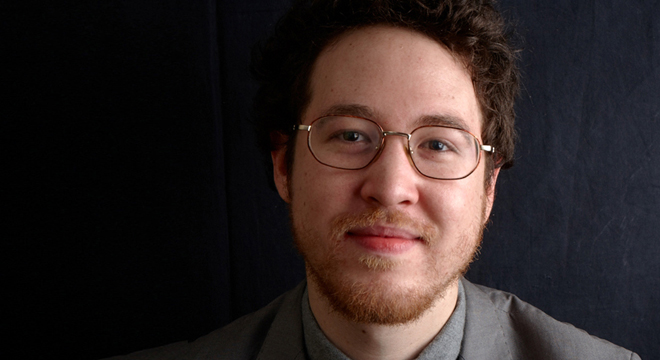Salon’s Alex Pareene recently spoke to TPM about his favorite political targets and what it would take (not really) for him to stop writing his hilarious takedowns.
How would you describe the state of political journalism today?
In one sense, it feels like it’s never been more inane and more minutiae-obsessed and more annoying. But on the other hand, there are so many great, great, great commentators and reporters. We’re definitely very, very lucky to live in a sort of golden age of easily available, great criticism and commentary and reporting. I think in the pre-internet age, you would have had a couple national newspapers and your local newspaper, and if you wanted to see some great story that a newspaper in another town did, you’d have to hope it got reported on the evening news. So in that sense, we totally are spoiled by the easy availability of all this free reporting. The market forces don’t necessarily make the great stuff more popular. It can feel like there’s a never-ending wave of bullshit every day, which I’m sure that also felt like was the case when there was no Politico.
Who are the worst offenders of the inane coverage?
People like Mike Allen and Jim VandeHei, together they are really sort of very purposefully focusing only on the least important things in the world, that’s their modus operandi. And whatever, people want that. There’s an audience for that. I probably go on at too great a length length on people who I think are doing what’s wrong in journalism.
Is there a point where the humor and flair of your writing obscures a point you’re trying to make?
I think humor can be an effective way of getting the point across, but there are definitely times where I just write very earnestly. And I guess just because of my style it might seem like I’m still “snarking.” But I think you can be very direct and earnest and honest while hopefully still being amusing.Â
Do you have any ambitions to do more straight-laced coverage?
I don’t want to be totally repetitive and doing the same thing over and over again for the rest of my life. I don’t want to do that at all. I don’t have this idea that I’m going to outgrow it — I know the sniping at people is sort of an adolescent thing to do, and I’m well aware of that. But on the other hand, H.L. Menken did that well into old age and made a fine career out of it. I would still hope to be more than happy to express my displeasure with people who I think are con artists and hacks and frauds, and so I don’t think I ever necessarily need to stop being like, these people are horrible, if there are still horrible people out there. But if it gets to the point, if I am a nationally syndicated, millionaire, lazy columnist who says all these other columnists are horrible, that has a little less impact. I guess if you want me to stop writing horrible mean takedowns of everyone, give me a really, really cushy columnist gig.
Who do you wish would have won the GOP nominating process?
Just for the sake of comedy, clearly anyone but Romney would’ve been great. Gingrich would’ve been hysterical, but there was never a real possibility of that happening. So I don’t know, I have this feeling, from a strictly political perspective, I think Romney was the best candidate they could have had this year. I just really think, as bad at being a candidate as he is, he’s sort of the right guy to go up against Obama in this environment. If I were a Republican I wouldn’t be quite so pissed off about it. As a socialist snark merchant, I definitely wish it was Chris Christie or something — he’d be so much more fun.
Who’s your favorite political figure or pundit to write about?
I used to love writing about Peggy Noonan — writing about her is so much fun, but I haven’t done anything about her in a while. Actually, Bloomberg. Bloomberg really gets my blood boiling. I can write about Bloomberg all day long. He’s my favorite in the sense of someone who really feels calculated to annoy me.Â
What do you read?
I probably read the pretty standard blogs and things. Mornings, I usually check Twitter first thing, which has supplanted my RSS reader to an extent, then I usually comb through that. Then it’s usually the New York Times front page and then Google Reader where I subscribe to a million political blogs and magazines and things like that. And that’s basically it. That’s how I get a grasp of what’s going on in the morning. I don’t watch MSNBC in the morning. I don’t watch Morning Joe. I usually have NY1 on. Traffic and weather I feel like is much more useful information to me than whatever Joe’s talking about.
Anything in print?
I don’t get a newspaper. When I’m heading to the subway I’ll pick up a Post or the Daily News if it has a particularly good front page. If I were a rich man I might get the Times, but it doesn’t quite seem worth it. And I get the New Yorker, which is a great magazine, I used to get the Atlantic, then my subscription ran out and I didn’t quite feel the need to re-up.
What made you interested in writing about politics specifically?
I grew up in a politically aware household, very civically minded, good Minnesota liberals. The interest was always there, and really the impetus was the 2004 election, when I started writing about it just on my own. Before that I’d sort of intended to be a playwright or music critic, the world’s brokest and least employable writer. So politics was the first thing anyone ever wanted to pay me to write about. And it took on a life of its own after that.
How does writing for Salon compare to the Gawker sites you wrote for before?
It’s a different atmosphere, really. It’s more adult, and I mean that in the sense that they don’t just hire a bunch of fresh-out-of-college employees who you can pay a low wage to. At Gawker, it always seemed like there was this new round of random young people just coming in to take over for all of the burned out people who had been there for a year and a half. That has changed. Gawker Media, since I left, is a more grown-up environment. But when I first came over to Salon, there were people who’d been there for many years, and still are. And there’s sort of an institutional memory here that I appreciated. Our editor Kerry’s been at Salon for a long time, and of course Joan still writes for us, so I appreciated that — there is an almost old-media sense of institutional memory, which is cool. So for the most part I have the freedom to write what I want, which is what I always loved about Gawker. So I have that still and I deeply appreciate that, because I know there are not a huge number of places where I’d be able to have that opportunity.Â
Do you feel your writing has changed? Is it more serious or mature at Salon?
I don’t even know. I’m sure that my writing’s inevitably changed as I’ve gotten hopefully better at this. But I’m not really doing anything intentionally differently beyond oftentimes just trying to put more time and effort into longer, more thought-out pieces.
What is it that makes people read Gawker and Salon differently?
It really is the reputation. Salon has earned its reputation for quality cultural criticism and journalism over years, and it’s really an earned reputation for years of having some of the smartest writing on the web.
How do you decide what to write about?
There’s couple different ways. One way is, this thing I just saw on Twitter that annoys me, so I have to write about it. That’s probably the impetus for 75 percent of the things I write about in general, and nearly 90 percent of what I wrote about at Gawker. And then the rest is, I get great ideas from my editor Ben Crair, and Salon’s Editor Kerry Lauerman, they both basically push me to write things that I wouldn’t have come up with on my own that turn out to be pretty great
I imagine there’s a lot of material on Twitter.
It’s endless.
How much reporting do you do?
I don’t do a whole lot — I do more now than I used to. But I’m still primarily a commentator and a filthy blogger. I will report a piece every now and then.Â
Is that something you’d like to do more of?
I would be happy to go out and travel and observe situations and things like that. You don’t necessarily have the best idea of what’s going on in the country if you’re sitting at your computer all day. And there are a lot of people who are fantastic reporters, I don’t think I’m ever going to be a great investigative journalist or anything like that. So I’m not going to set my sights on that, but I definitely in the future plan on doing more going out and finding stories like that.
This interview has been edited for clarity and length.










